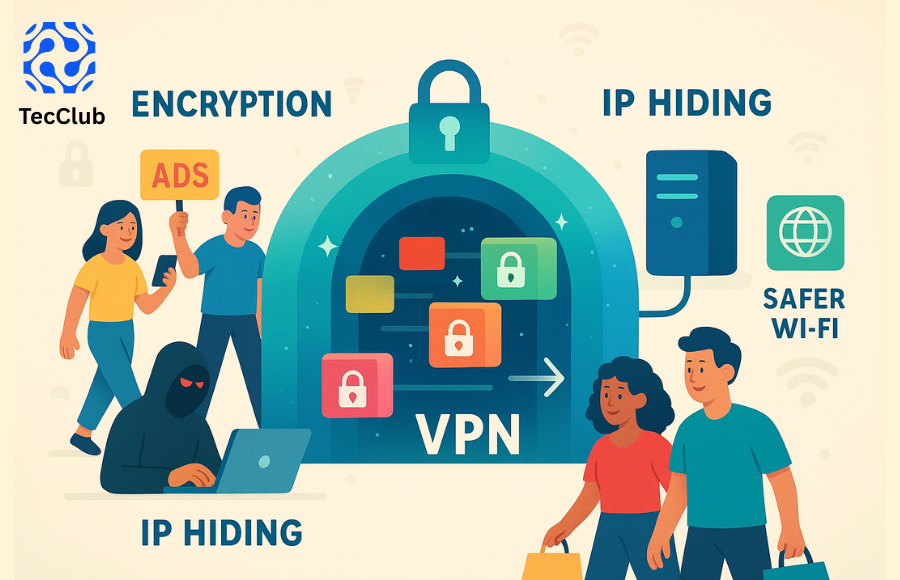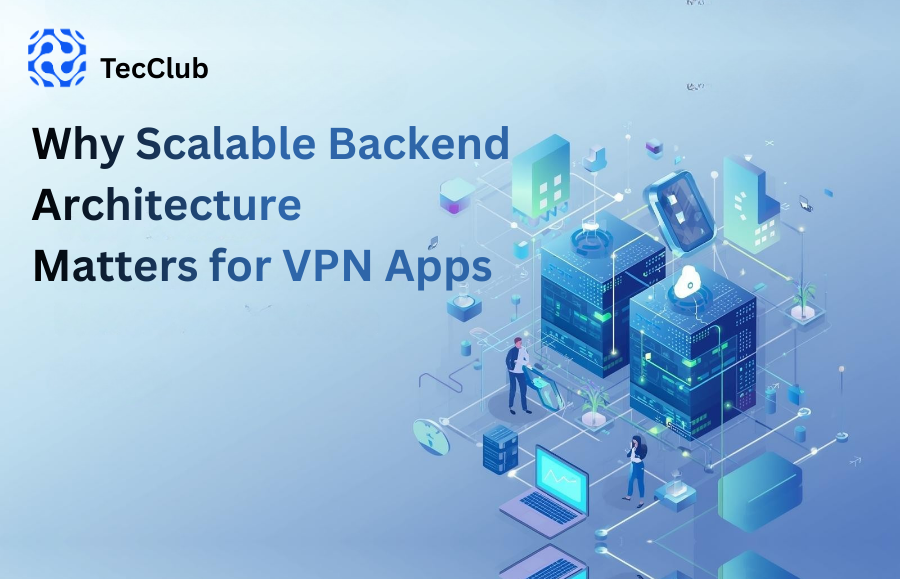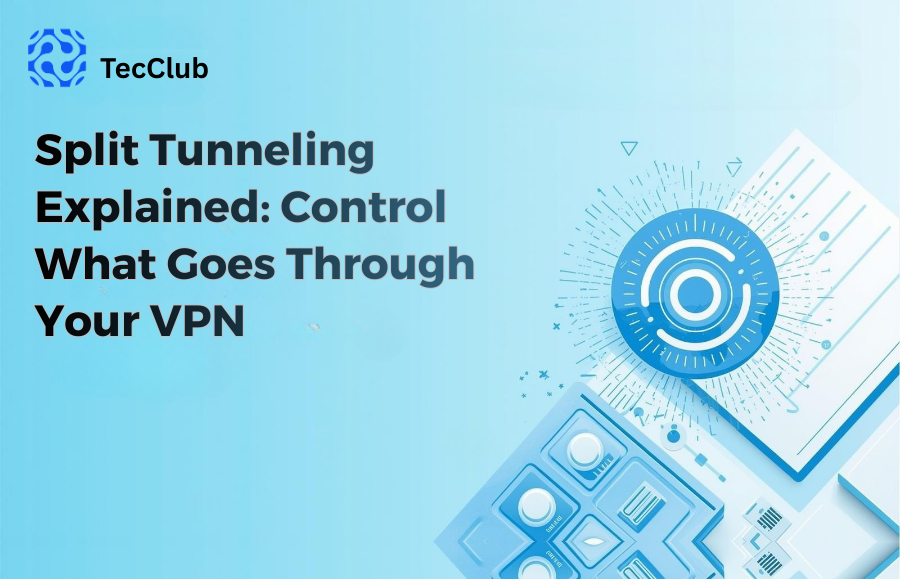
The internet is kind of like a busy street—you’re walking around, looking at shops, and there are always people watching. Some are harmless, some just want to sell you stuff, and some… well, they’re looking to take advantage. Every time you click, search, or log in, you leave behind little bits of info. Your internet provider sees it, advertisers grab it, and hackers are always hoping to catch something useful.
That’s why VPNs exist. You’ve probably heard of them, but maybe you’re not 100% sure what they do. Let’s break it down in plain language.
Think of a VPN (Virtual Private Network) as a private tunnel for your internet traffic. Instead of sending your info straight from your phone or laptop to a website, it goes through a VPN server first. That server hides your real location (your “digital home address”) and locks up your data with encryption.
A simple way to picture it: sending a postcard vs. sending a locked box. A postcard can be read by anyone handling it along the way. A locked box? No one can see what’s inside except the person it’s meant for. That’s basically what a VPN does.
Encryption – All your online stuff (searches, messages, logins) gets scrambled into nonsense so that anyone trying to peek in can’t read it.
Hiding your IP – Normally, websites can tell where you’re located from your IP address. A VPN swaps it out with the server’s IP instead.
Safer Wi-Fi – Free Wi-Fi at cafés, hotels, or airports is convenient but not secure. A VPN keeps others on the same network from snooping.
Using a VPN won’t make you invisible, but it does give you:
Less tracking from your internet provider.
Fewer advertisers following you around online.
Protection against hackers trying to steal passwords or payment info.
A way to get around region blocks or those sneaky “location-based” prices.
It’s not about hiding from the whole world—it’s about making it harder for the wrong people to watch what you’re doing.
Here’s the honest part: VPNs are great, but they’re not magic.
They won’t stop you from clicking on a fake website and typing in your details.
They don’t block viruses—you still need antivirus software.
If you’re logged into Google, Facebook, or Amazon, those companies can still see what you do on their platforms.
You’re trusting the VPN provider itself, so choosing a good one matters.
Picture yourself at a coffee shop, shopping online or paying a bill. Without a VPN, anyone on that Wi-Fi could, in theory, peek at your connection. With a VPN on, your data is locked up, your location is hidden, and you can sip your latte in peace.
That’s the whole point—it gives you control and a bit of breathing room in a digital world that never stops watching.
VPNs encrypt your data, hide your location, and make public Wi-Fi much safer. They’re not perfect, but they’re a solid extra layer of privacy.
✅ Turn it on whenever you’re using public Wi-Fi.
✅ Pick a provider you actually trust (no-logs policy is key).
✅ Use strong passwords + two-factor authentication.
✅ Keep your apps and devices updated.
✅ Remember: a VPN protects your connection, not your choices.

